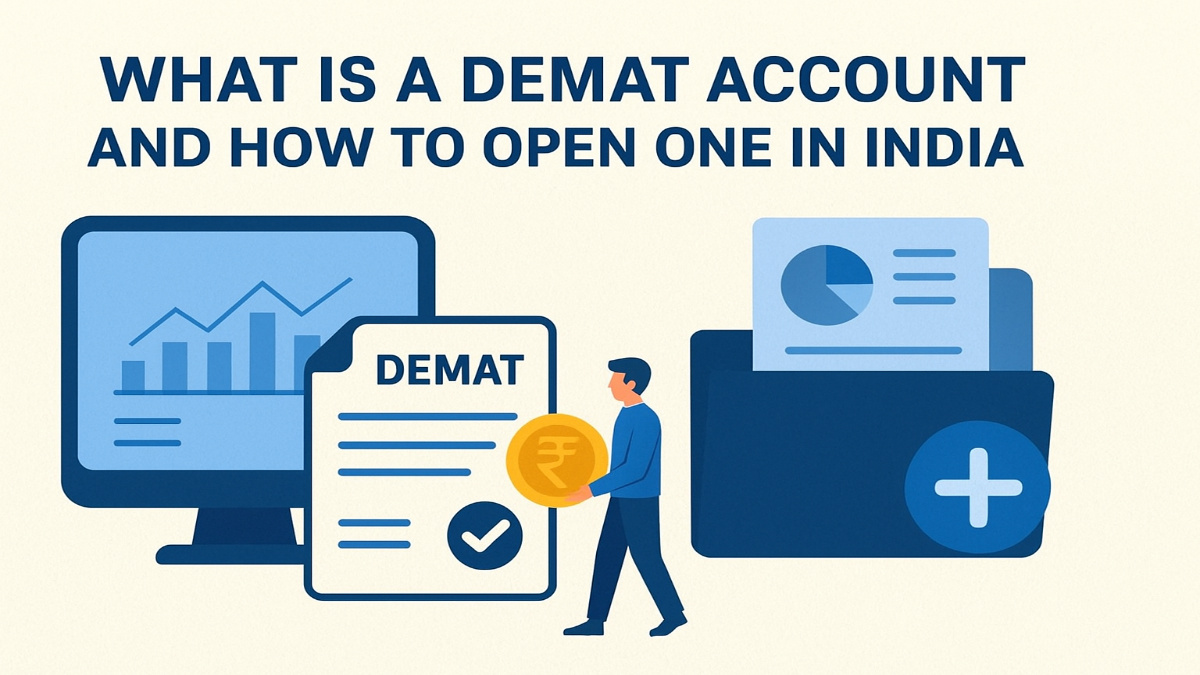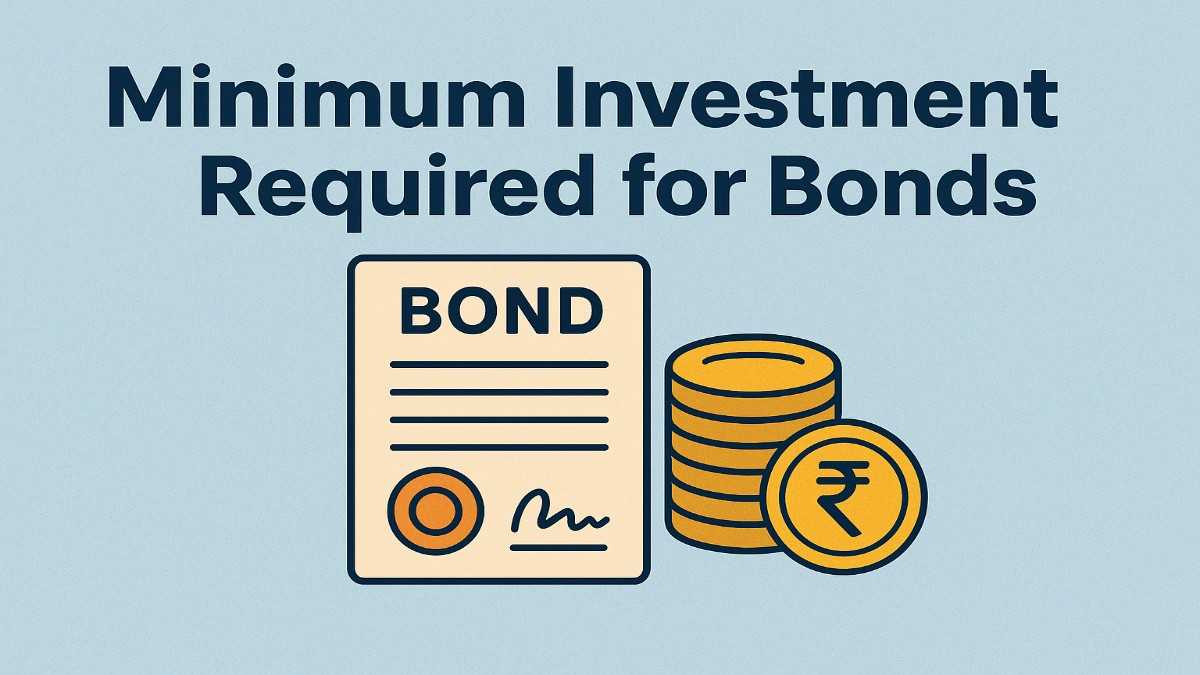The stock market is a fascinating yet complex part of the financial world, especially in a rapidly growing economy like India. For many Indians, it represents an opportunity to grow wealth, achieve financial goals, or even secure a secondary income source. But what is the stock market and how does it work?
Table of Contents
Introduction: Why Understand the Stock Market?
The stock market is often seen as a place where fortunes are made or lost, but it’s much more than that. It’s a platform where companies raise funds to grow, and investors like you can participate in that growth. In India, the stock market has gained immense popularity, with over 10 crore Demat accounts opened by 2022, reflecting growing interest among retail investors Tata Moneyfy. Understanding what is the stock market and how does it work is the first step to making informed investment decisions. This guide will cover everything from the basics to practical tips for beginners, ensuring you have a solid foundation to start your investment journey.
What Is the Stock Market?
At its core, the stock market is a marketplace where shares of publicly traded companies are bought and sold. A share represents a small portion of ownership in a company. When you buy a share, you become a part-owner, entitled to a portion of the company’s profits (dividends) and, in some cases, voting rights at shareholder meetings Investopedia.
Key Features of the Stock Market
- Ownership: Buying shares means you own a piece of the company.
- Liquidity: Shares can be easily bought or sold on stock exchanges.
- Price Fluctuations: Share prices change based on supply and demand, influenced by company performance, economic conditions, and investor sentiment.
In India, the stock market operates through two main exchanges:
- Bombay Stock Exchange (BSE): Established in 1875, it’s Asia’s oldest stock exchange and lists thousands of companies Groww.
- National Stock Exchange (NSE): Founded in 1992, it’s the largest by trading volume and known for its electronic trading system Groww.
The stock market is regulated by the Securities and Exchange Board of India (SEBI), which ensures transparency and protects investors HDFC Bank.
How Does the Stock Market Work?
Understanding what is the stock market and how does it work involves grasping the mechanics of how shares are traded and how prices are determined. Here’s a detailed breakdown:
1. Companies Issue Shares
Companies need money to grow, innovate, or expand. They raise this capital by issuing shares through an Initial Public Offering (IPO) in the primary market. During an IPO, shares are sold directly to investors, and the company receives the funds Investopedia.
Example: When Zomato went public in 2021, it raised funds by selling shares to investors through an IPO, which were then listed on the BSE and NSE.
2. Trading on Stock Exchanges
Once shares are issued, they are traded in the secondary market on stock exchanges like the BSE or NSE. Investors buy and sell these shares among themselves, and the company is no longer directly involved in these transactions.
3. Role of Brokers
Investors cannot trade directly on stock exchanges. They need a stockbroker, a registered intermediary who executes buy and sell orders. Brokers can be full-service (offering advice) or discount brokers (like Zerodha or Groww) that provide low-cost trading platforms Angel One.
4. Price Determination
Stock prices are determined by supply and demand. If more investors want to buy a stock (high demand), its price rises. If more want to sell (high supply), the price falls. Factors influencing prices include:
- Company Performance: Strong earnings or new product launches can boost prices.
- Economic Conditions: Inflation, interest rates, or GDP growth affect market sentiment.
- Investor Sentiment: News, rumors, or global events can drive buying or selling.
5. Regulation by SEBI
SEBI ensures the market operates fairly by setting rules for companies, brokers, and exchanges. It monitors trading activities, prevents fraud, and protects investor interests HDFC Bank.
Types of Stock Markets
- Primary Market: Where new shares are issued via IPOs.
- Secondary Market: Where existing shares are traded among investors.
Key Players in the Indian Stock Market
To fully grasp what is the stock market and how does it work, you need to know the key players involved:
| Player | Role |
|---|---|
| Companies | Issue shares to raise capital for business operations or expansion. |
| Investors | Individuals or institutions who buy/sell shares to grow wealth or profit. |
| Brokers | Facilitate trades on behalf of investors, using trading platforms. |
| SEBI | Regulates the market to ensure transparency and protect investors. |
| Depositories | Hold shares electronically (e.g., NSDL, CDSL) in Demat accounts. |
How to Invest in the Indian Stock Market
Starting your investment journey in the stock market is easier than it seems. Here’s a step-by-step guide to help you begin:
1. Open a Demat and Trading Account
- Demat Account: Holds shares in electronic form, managed by depositories like NSDL or CDSL.
- Trading Account: Allows you to buy and sell shares through a broker.
- Popular brokers in India include Zerodha, Groww, Angel One, and Upstox Zerodha Varsity.
2. Choose a Broker
Select a broker based on fees, platform usability, and educational resources. Discount brokers are ideal for beginners due to low costs.
3. Fund Your Account
Deposit money into your trading account to start investing. Many brokers allow you to start with as little as ₹100.
4. Research and Analyze
Before investing, research companies using:
- Fundamental Analysis: Evaluate financial health, earnings, and growth potential.
- Technical Analysis: Study price trends and market patterns.
- Resources like Moneycontrol or NSE’s website provide valuable data NSE India.
5. Place Orders
Use your broker’s platform to place orders:
- Market Order: Buy/sell at the current market price.
- Limit Order: Buy/sell at a specific price.
Example: If you want to buy shares of Tata Motors at ₹500, you can place a limit order to ensure you don’t pay more.
6. Monitor Your Investments

Regularly review your portfolio and stay updated on market news. Avoid making impulsive decisions based on short-term price fluctuations.
Risks and Rewards of Stock Market Investing
Investing in the stock market offers both opportunities and challenges. Understanding what is the stock market and how does it work includes knowing its risks and rewards:
Rewards
- High Returns: Historically, the stock market has delivered average annual returns of around 10% Groww.
- Dividends: Some companies pay dividends, providing a regular income stream.
- Wealth Creation: Long-term investments in growing companies can significantly increase your wealth.
Risks
- Volatility: Stock prices can fluctuate rapidly due to market conditions or company-specific issues.
- Economic Factors: Inflation, interest rates, or global events can impact the market.
- Company Risks: Poor performance, management issues, or scandals can lower share prices.
Managing Risks
- Diversification: Spread investments across sectors (e.g., IT, banking, FMCG) to reduce risk.
- Long-Term Perspective: Focus on long-term growth rather than short-term gains.
- Education: Stay informed about market trends and company performance.
Stock Market Indices in India
Stock market indices track the performance of a group of stocks, serving as indicators of market health. In India, the two main indices are:
- S&P BSE Sensex: Tracks 30 large-cap companies on the BSE, such as Reliance Industries and HDFC Bank Groww.
- NIFTY 50: Tracks 50 large-cap companies on the NSE, representing various sectors Groww.
These indices help investors gauge market trends and make informed decisions. For example, a rising Sensex often indicates investor optimism and economic growth.
Basic Stock Market Terminology
To navigate the stock market, you need to understand key terms. Here’s a table of essential terms for beginners:
| Term | Definition |
|---|---|
| Stock/Share | A unit of ownership in a company. |
| Dividend | A portion of a company’s profits paid to shareholders. |
| IPO | Initial Public Offering, when a company first sells shares to the public. |
| Demat Account | An electronic account to hold shares. |
| Broker | An intermediary who executes buy/sell orders. |
| Bull Market | A market with rising stock prices, reflecting optimism. |
| Bear Market | A market with falling stock prices, reflecting pessimism. |
| Portfolio | A collection of investments held by an investor. |
The Indian Stock Market: A Closer Look
India’s stock market is one of the largest globally, with a market capitalization exceeding $4 trillion in 2024 Investopedia. Here’s an overview:
History
- BSE: Founded in 1875, it’s one of the oldest stock exchanges in the world.
- NSE: Established in 1992, it introduced electronic trading, revolutionizing the market.
Regulation
SEBI, established in 1992, ensures transparency, prevents fraud, and promotes investor confidence. It regulates companies, brokers, and exchanges.
Trading Hours
The market operates from 9:15 AM to 3:30 PM IST, Monday to Friday, with pre-opening and post-closing sessions.
Dematerialization
Shares are held electronically in Demat accounts, managed by depositories like NSDL and CDSL, eliminating physical certificates.
Recent Trends
In 2025, the Indian stock market has seen strong performance, with the Sensex and Nifty reaching new highs, driven by sectors like banking and IT Economic Times.
Tips for Beginners in the Indian Stock Market
Starting your investment journey can be exciting but overwhelming. Here are some tips to help you succeed:
- Educate Yourself: Use resources like Zerodha Varsity or Groww’s learning center to understand the market Zerodha Varsity.
- Start Small: Begin with a small investment to minimize risk while learning.
- Invest in Blue-Chip Stocks: Focus on stable, well-established companies like TCS, Reliance, or HDFC Bank.
- Diversify: Spread investments across sectors to reduce risk.
- Avoid Emotional Decisions: Stick to your strategy and avoid reacting to short-term market fluctuations.
FAQs:
What is the difference between BSE and NSE?
BSE is Asia’s oldest stock exchange, while NSE is the largest by trading volume. Both facilitate stock trading but have different indices (Sensex for BSE, Nifty for NSE).
How can I start investing in the stock market?
Open a Demat and trading account, choose a broker, fund your account, research stocks, and place orders.
What are the risks involved in stock market investing?
Risks include market volatility, company-specific issues, and economic factors. Diversification and research can help manage these risks.
How are stock prices determined?
Prices are driven by supply and demand, influenced by company performance, economic conditions, and investor sentiment.
What is the role of SEBI?
SEBI regulates the market to ensure transparency, fairness, and investor protection.
Can I invest with a small amount?
Yes, many brokers allow investments starting at ₹100. Start small and focus on learning.
How often should I monitor my investments?
Review your portfolio regularly but avoid frequent checks to prevent impulsive decisions.
What is an IPO?
An IPO is when a company sells shares to the public for the first time to raise capital.
What is a bull market vs. a bear market?
A bull market features rising prices and optimism, while a bear market has falling prices and pessimism.
Is the Indian stock market safe for beginners?
Yes, with proper education and a cautious approach, it’s safe. SEBI’s regulations provide additional protection.
Conclusion: What Is the Stock Market and How Does It Work?
The stock market is a dynamic platform that connects companies and investors, driving economic growth and wealth creation. In India, it’s an accessible avenue for beginners to invest, provided they understand what is the stock market and how does it work. By opening a Demat account, choosing a reliable broker, and conducting thorough research, you can start your investment journey with confidence. While risks exist, a long-term perspective and diversification can help you achieve your financial goals. Stay informed, start small, and let the stock market work for you.
Disclaimer: Moneyjack.in provides general financial information for educational purposes only. We are not financial advisors. Content is not personalized advice. Consult a qualified professional before making financial decisions. We are not liable for any losses or damages arising from the use of our content. Always conduct your own research.













